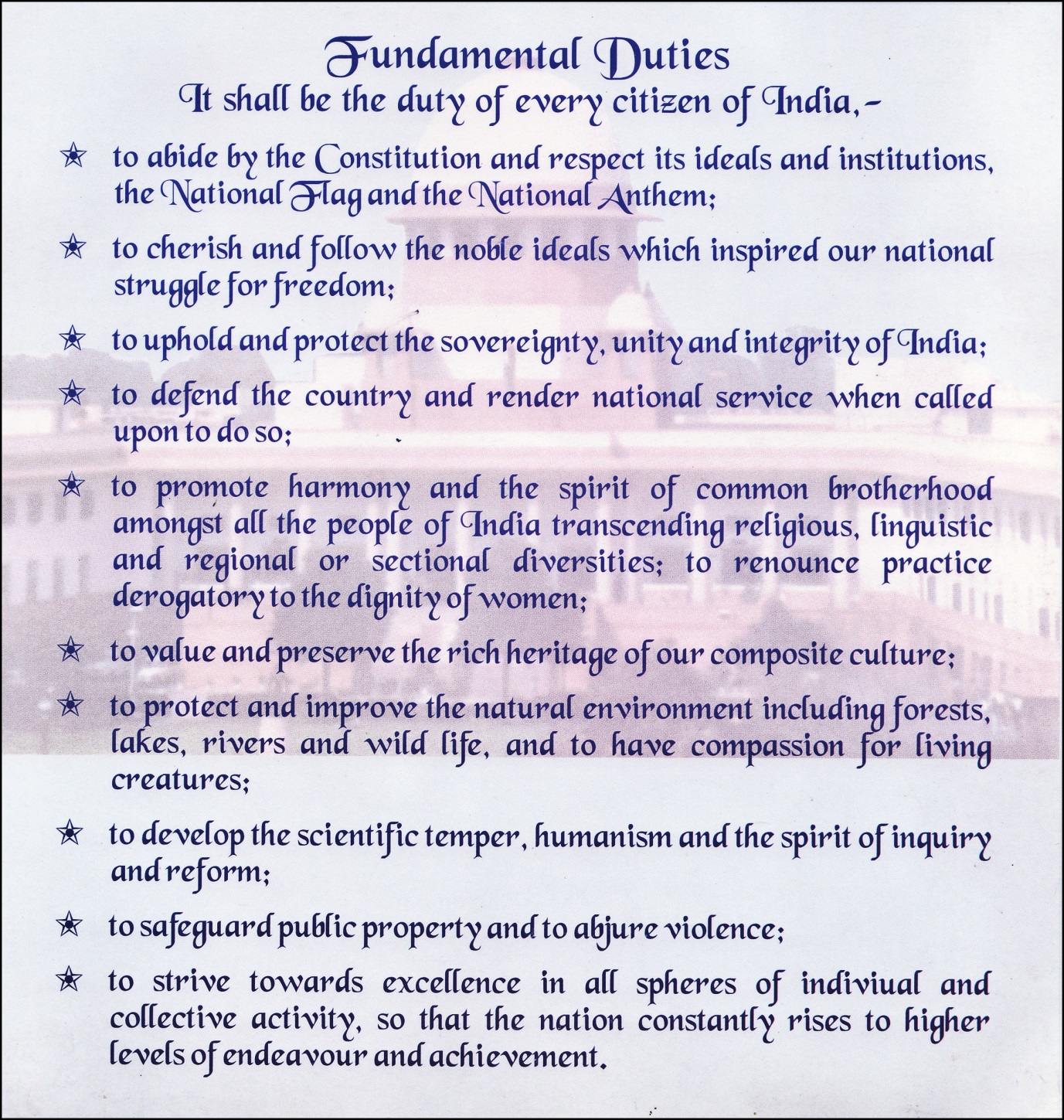

(d) Article 28 - Freedom from attending religious instruction or worship in certain educational institutions (c) Article 27 - Freedom from payment of taxes for promotion of any religion or religious affairs. (b) Article 26 - Freedom to manage religious affairs.
Fundamental rights and duties of india pdf merge free#
(a) Article 25 - Freedom of conscience and free profession, practice and propagation of religion. (b) Article 24 - Prohibition of employment of children in Companies and factories, etc. (a) Article 23 - Prohibition of traffic in forced labour and human beings.

(e) Article 22 - Protection against arrest and detention in certain cases. (d)Article 21A - Right to elementary education. (c) Article 21 - Protection of life and personal liberty. (b) Article 20 - Protection in a conviction for offences. (a) Article 19 - Protection of six rights regarding freedom of: (e) Article 18 - Abolition of titles except military and academic. (d) Article 17 - Abolition of untouchability and prohibition of its practice. (c) Article 16 - Equality of opportunity in terms of public employment. (b) Article 15 - Prohibition of discrimination on grounds of religion, caste, sex, place of birth or race. (a) Article 14 - Equal protection of laws and Equality before law. These are as follows with proper explanation: Fundamental Rights At present, there are only 6 Fundamental Rights. The right to property was deleted from the list of Fundamental Rights by the 44th Constitutional Amendment Act of 1978 and made a legal right under Article 300-A in Part 12 of the Indian Constitution.


The Fundamental Rights are included in Part 3 of the Indian Constitution from Articles 14 to Article 35. It is because of this reason that the financial controller receives a decent salary of, on average, up to $126,373.Fundamental Rights of the Indian Constitution: The Fundamental Rights are named so because they are protected and guaranteed by the Constitution, which is the fundamental law of India. A controller’s duties are important because the remainder of employees in the company, from workers to executives, rely on his interpretation of figures to make decisions on expenses and sales. While a controller cannot make any drastic decisions as a CFO would probably do, the financial controller is the individual that is providing and interpreting the financial information that the company’s output is yielding. In other words, you could say that a controller is a not much more than a financial reporter.


 0 kommentar(er)
0 kommentar(er)
